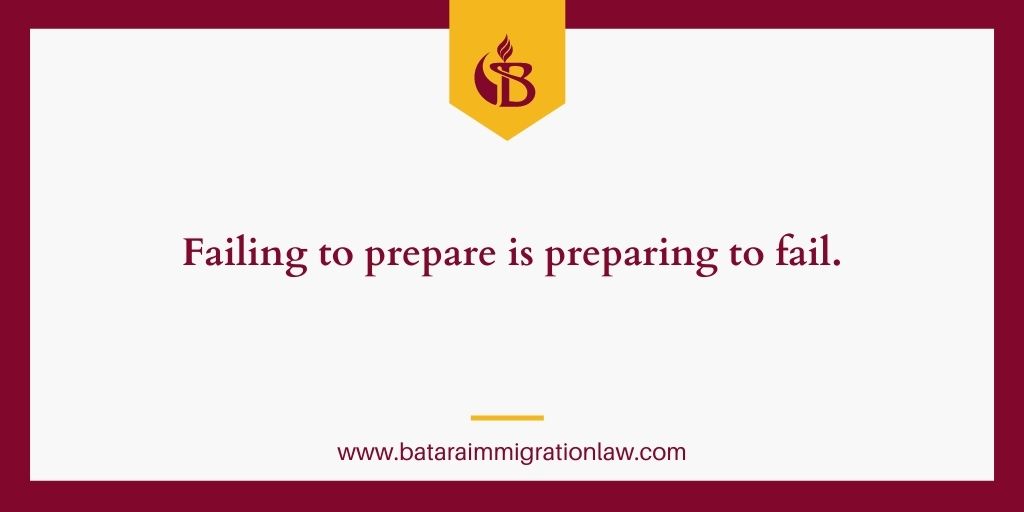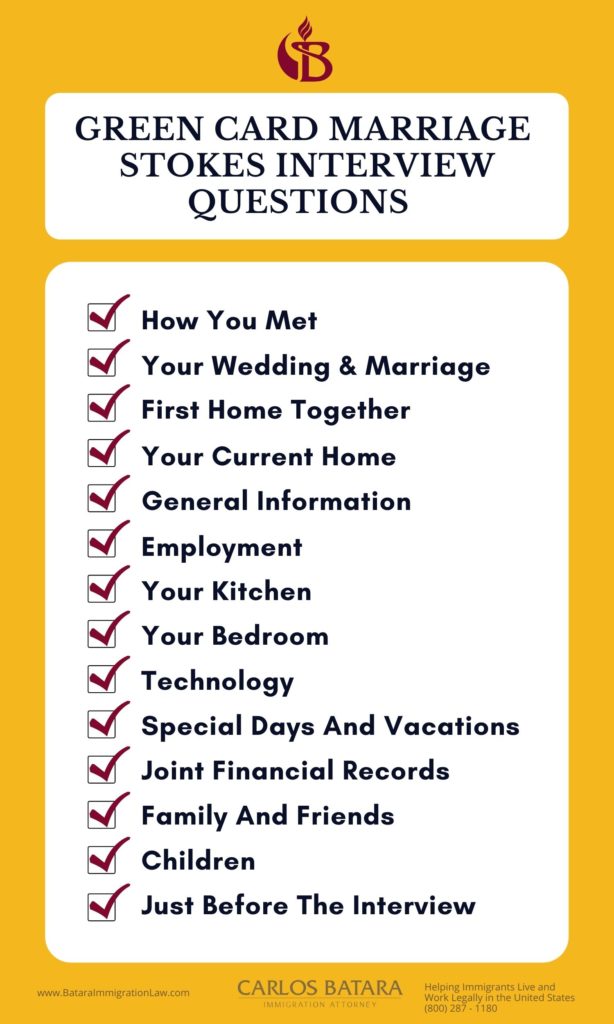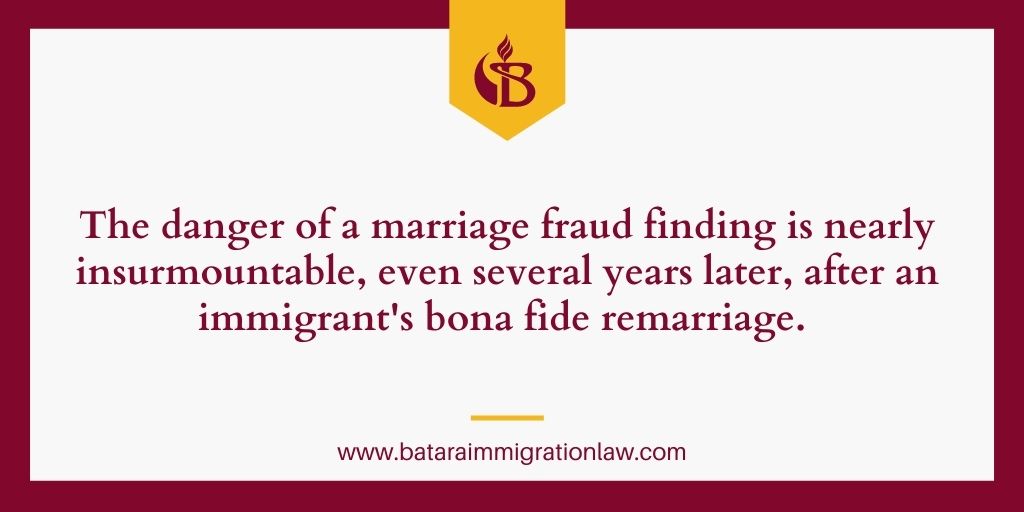
I was a rookie attorney. I was in my first year of practicing law.
I was eager to change the world, one immigrant at a time.
A couple asked me to help them prepare for an upcoming immigration interview.
I had not yet learned how to spot immigration fraud.
Looking back, I realize now that I already knew enough to diagnose sham cases. But I naively believed only those who had legitimate cases would reach out to lawyers.
My professional gullibility ended that morning – within mere minutes of listening to the immigrant’s answers to the USCIS officer’s questions.
The couple had been summoned to a Stokes Interview. They had already attended one interview. The government was giving them a second chance to prove the authenticity of their marriage.
The breadth of the questions asked exposed their effort to disguise their fake relationship.
I became a better green card lawyer that day, less unsuspecting and more discerning about the facts that potential clients tell me about their situations.
I was furious with myself. I swore that I would never be so easily duped again.
USCIS did not issue an immediate decision.
Nonetheless, once we were in the parking lot, you can imagine what I said to my clients.
What Is A Stokes Interview?
The Stokes interview is a marriage fraud interview. The couple is placed in separate rooms, where they will be asked an identical set of questions.
It occurs when the government doubts the authenticity of your green card marriage. Generally speaking, three reasons spark these interviews.
Your application for permanent residence lacks sufficient proof of a valid marriage, has inconsistencies which casts doubt about the relationship, or lists facts which raise red flags you and your spouse may be engaging in a marriage sham.
Typically, the Stokes interview is a couple’s second interview. Both husband and wife are subjected to a higher level of scrutiny and more intensive questioning.
The separate interviews, which can take several hours, are usually recorded. The answers are compared against each other. Discrepancies can cause the government to deny the application.
A Stokes interview can be scheduled at different stages in the marriage green card process.
It might be held before USCIS approves an immigrant relative petition filed by a U.S. citizen or permanent resident spouse. Other times, it is conducted at the adjustment of status interview after the I-130 petition has already been approved.
It can also take place several years later, when the couple attends an appointment to for their I-751 petition to remove conditions on the immigrant spouse’s green card. Or such questioning may transpire at interviews abroad for immigrants who apply for marriage-based K-1 visa at a U.S. consulate office.
Why Preparation Is Important For
All Green Card Marriage Interviews
Do you have a marriage-based permanent residence interview coming up?
Are you feeling nervous, scared, or anxious?
Such feelings are natural.
As long as your relationship is genuine, however, you should not be overly worried.
But you must prepare.
For failing to prepare, as Benjamin Franklin once said, is preparing to fail.

That’s especially true for couples attending an adjustment of status interview based on marriage.
Unfortunately, many couples, thinking that because their marriage is real, do not spend adequate time getting ready for the immigrant husband or wife’s green card interview.
While matrimony is perhaps the fastest way to earning permanent residence, they neglect to take actions to avoid marriage green card mistakes.
They overlook that their interview will be conducted by a cautious, if not distrustful, officer, who, with the mere stroke of a pen, has the ability to put a serious dent into the couple’s life plans.
Take Vicente and Corina.
.
Although they were from the same country, their age difference of 13 years, coupled with the fact they were born in the same small village of their home country, was a “red flag” for the USCIS officer assigned to their case.
The officer decided to summon them for a Stokes interview related to Corina’s I-130 petition for Vicente.
The couple was separated.
After being placed in separate rooms, they were asked an identical set of questions.
What Types Of Questions Will Be
Asked At A Stokes Interview?
Immigration officers have a lot of latitude in asking marriage fraud questions. Nearly no inquiries are off limits, except for those about highly personal and private matters. In general, the matters probed fall into a few categories, outlined in the graph shown below.

Vicente and Corina did not prepare in advance. They took the process for granted.
A few weeks later, they received a Notice Of Intent To Deny. The government did not think they had shown their marriage was a good faith marriage.
Afterwards, they visited my immigration office, afraid that their dream of living together in the United States was over.
The government’s notice listed various differences in their answers.
Among their differences:
- Vicente said that he met Corina shortly after he arrived in the U.S. at the age of 22. She said that she met him when he was only 7 years old.
- Vicente said they started dating in the month of August, about eight months before they married. Corina said they started seeing each other in February, over a year prior to their marriage.
- Vicente said that he bought her a chocolate cake for her birthday earlier in the year. She said that he bought her a vanilla cake.
- He said that they celebrated in person for his birthday. Corina said that he was working long-distance on his birthday.
- When queried about their move-in together date, he said that he moved into her residence before the marriage. She said it was after the marriage.
As with many couples who do not prepare in advance, the reasons for their disparities were simple.
But they should never have happened.
Corina, being older than Vicente, recalled meeting him as a young child when she went back to her home country for a short visit. He, being much younger, did not.
Corina and Vicente understood the reference to “dating” differently. Having been divorced for several years, she felt that when they started going to restaurants and places together, they were dating. Vicente believed that dating started after he formally asked her to be his girl-friend.
Vicente had a special marble cake baked for his wife, a cake that was half chocolate, half vanilla. (And they had pictures of the cake, which they never bothered to show the officer.)
Vicente was working out-of-town on his birthday, but when he arrived back in town, they celebrated with some friends at a local restaurant. (And again they had photos never shared with USCIS.)
When Vicente started leaving clothes at Corina’s home, even though he still maintained a separate apartment and would only spend a few days there at-a-time, he considered his actions to moving-in. Corina, on the other hand, answered the USCIS question based on the date they began living together on a daily basis.
Eventually, they prevailed. 2 appeals and 2½ years later. Had they taken time to prepare for what they might be questioned about, their worrying and money spent could have been avoided.
The Dangerous Consequences Of
Marriage Fraud Suspicions
Not all couples who fail to adequately prepare for their interviews and make such careless mistakes are so lucky.
Even when husbands and wives prepare, some individuals cause themselves problems by not practicing common sense guidelines for providing testimony.
Time and again, as an appellate attorney, when I’ve assessed the government’s claims of marriage fraud, it’s clear that immigrants or their spouses committed errors like:
- Failing to listen to the questions carefully and blurting responses without thinking about the answers beforehand
- Not asking for clarification when they do not understand a question
- Giving wild guesses or estimates, when “I don’t know” is the best answer
- Staying quiet and not correcting a mistake, after realizing they have mis-spoken
Most commonly, if the government feels the couple married only to help the immigrant win a green card, a Notice Of Intent To Deny will be issued. The couple will be given 30 days to explain the discrepancies. If the government remains unsatisfied with the response, the couple can file an appeal.
Should the appeal also be denied, many immigrants are then sent a Notice To Appear at Immigration Court to face deportation charges related to the marriage fraud allegations.
Although the court hearings will allow the immigrant a new chance to defend himself, the transcribed record of the couple’s disparate answers at their Stokes interview will be put into evidence. Their responses will be subjected to strenuous cross-examination by the DHS attorney and detailed review by the judge assigned to the case.
There are worse consequences.

The danger of a marriage fraud finding is nearly insurmountable. Despite a speculative conclusion, based only on insufficient evidence of a bona fide marriage, it can prevent an immigrant spouse from ever becoming a green card holder.
Under INA section 204(c), known as the Marriage Fraud Bar, even several years later, the immigrant’s path to permanent residence through a second marriage is often blocked due to the accusations of marriage fraud in his or her first marriage.
Others may be charged with criminal violations under INA section 275(c). The penalties in such cases are quite severe – up to 5 years in prison and $250.000.
In short, not preparing in advance is a risk couples in love should never, ever, take.
Ready to take a serious and honest look at the strengths and weaknesses of your immigration case? Let’s get started with a personalized strategy and planning session . . .




